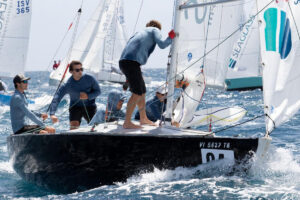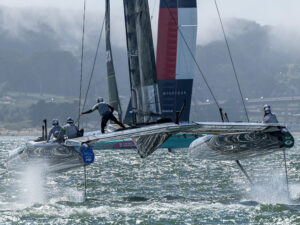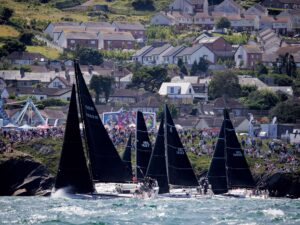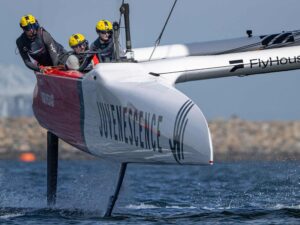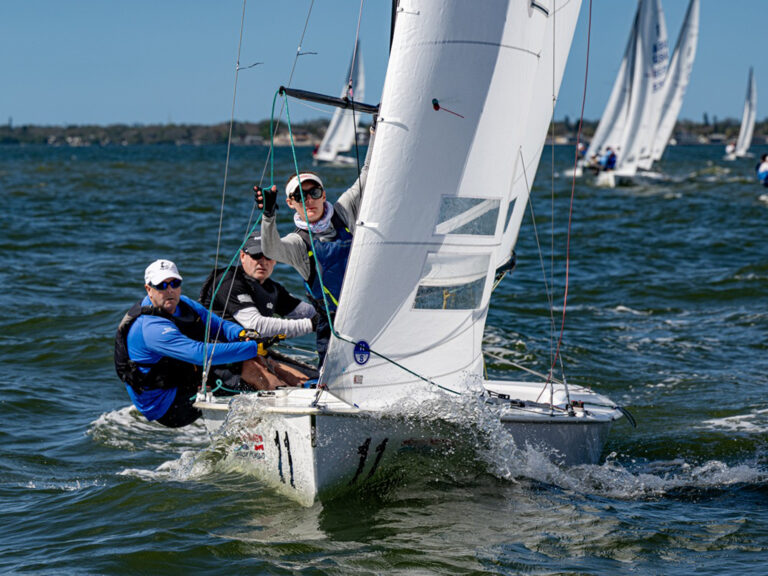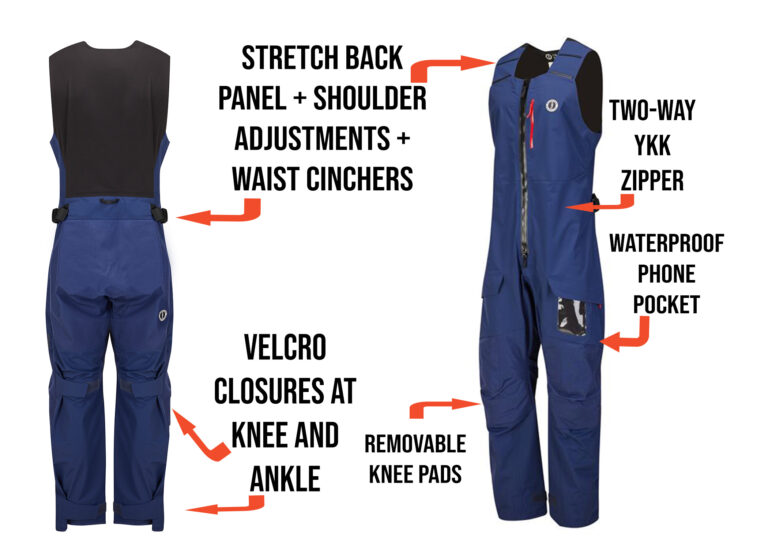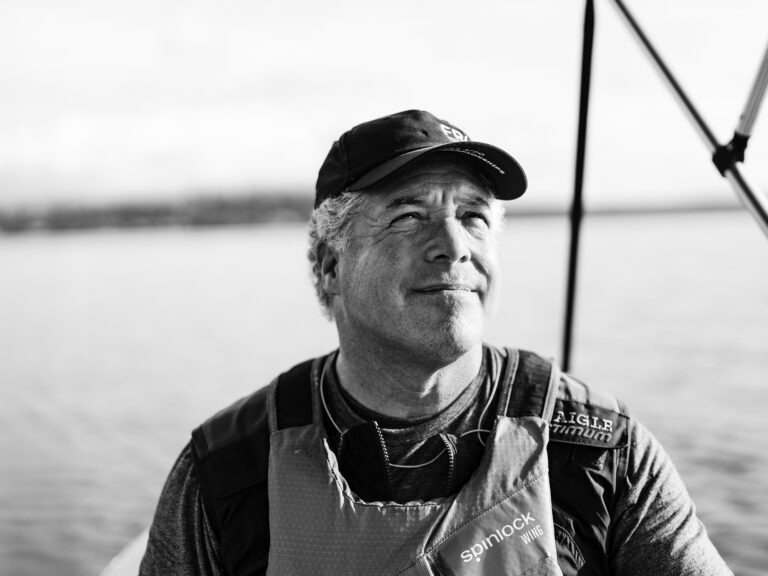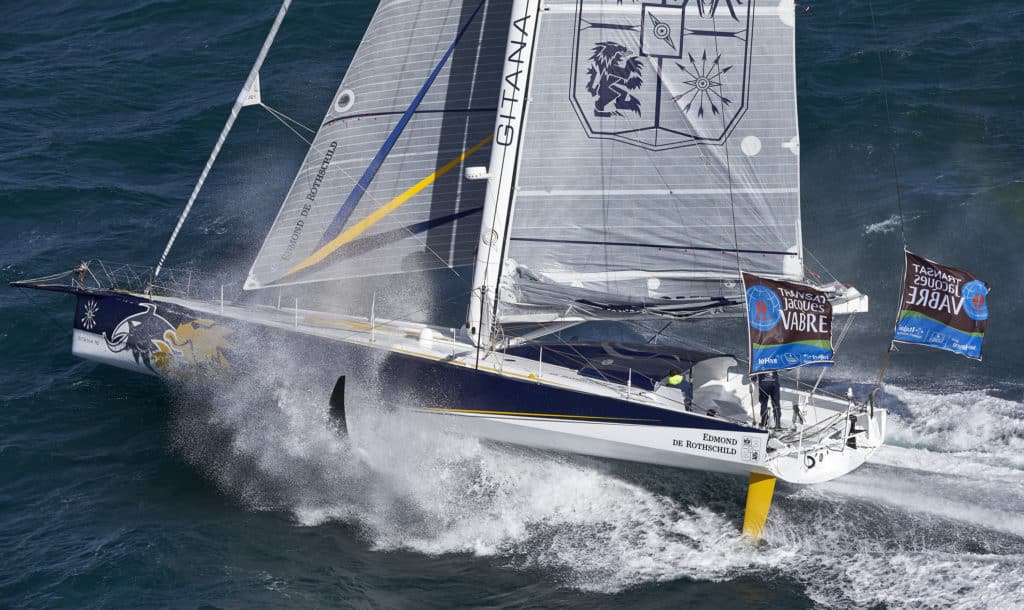
For several days, the forty-two duos competing in the Transat Jacques Vabre have been glued to the grib weather files. With 24 hours until the start which, subject to last minute changes, will set sail tomorrow, Sunday 25 October at 12:30 GMT, the forecasts are becoming more refined and have finally revealed the scenario for the first few days of racing in this 2015 edition. After a gentle introduction and what promises to be an express exit from the English Channel, things are set to get complicated in the Bay of Biscay with the negotiation of a deep depression that will pick up a violent sea. Aboard the Mono60 Edmond de Rothschild, Sébastien Josse and Charles Caudrelier are ready for this debut performance, which is certainly going to be a baptism of fire.
The Opening Proceedings
“We couldn’t have hoped for a better start for our new boats in terms of the wind direction,” Sébastien Josse beams. “After the first few hours of racing, which are likely to be played out in ‘piano’ mode with virtually no wind (4 to 6 knots) during kick-off, a south-easterly breeze will freshen as it clocks round to the south, to become decidedly meatier off Raz Blanchard.”
In these conditions, the Edmond de Rothschild duo will be making headway beam onto the wind and then, as they bear away a little more, they’ll be able to pick up the pace. At that point, in line with just four other competitors with foils, they’ll be able to let their lifting surfaces do the talking. In this way, the 220 miles, which separate Le Havre from the English Channel are likely to be devoured at speed and the leaders in the IMOCA class may well be able to make their entrance into the Bay of Biscay from the early hours of Monday morning.
“Things will crescendo then and the wind will start to back as it builds throughout our exit from the English Channel. Today, if the current routing pans out that will give us a fantastic trajectory with speeds set to border on 18 – 22 knots so it’ll be quick! This first phase is clearly geared up for our boats,” explains the skipper.
Though the departure from the English Channel promises to be just right for Sébastien Josse and Charles Caudrelier to calmly find their feet in this race, they will have to quickly get into the swing of things aboard the most recent of the Gitana fleet as the next stage of the game promises to be a lot more tricky. Indeed, the duo will have to negotiate a low at the entrance to the Bay of Biscay and the atmosphere will be transformed on the deck of the Mono60 Edmond de Rothschild.
A Boat-breaking Sea
You could see the concerned looks on the faces of the skippers at this morning’s start briefing. The reasoning behind this is that after the first few hours of calm conditions, the twenty monohulls competing in the IMOCA class will have to deal with the first storm of the race.
“Given the line-up, if we are to win this race then we’ll have to go where it hurts. In these conditions, there’s a risky element where we won’t be able to control everything and that’s not a configuration that appeals to us. The weather conditions forecast 36 hours after the start are very bad for the boats. Overnight on Monday through into Tuesday, we’re going to traverse a low. Prior to this low, there will be a southerly wind, whilst afterwards it will punch in from the North. This change will kick in so quickly that the seas won’t have the time to organise themselves. What that means is that we’ll hold onto a very heavy southerly sea of 7 to 8 metres, which will be transformed into cross seas with a northerly sea, which will arrive with the new wind. It’s not the wind that is of concern to us; it’s really the sea. The grib files are predicting 7 to 8-metre waves, so we know that in practice that can equate to more than 10 metres. We don’t have many solutions to counter that other than to hunker down or go on the run. At that point, we switch to another mode, neglecting the race to some extent! The game plan will involve not damaging the boat…”
Indeed, with a freshly launched boat, the watchword aboard Gitana’s Mono 60 is sure to be safety: “We’re competitors but faced with conditions such as these, you have to focus on good seamanship, both in terms of the sailors and the machine, and know how to hunker down and if necessary let the worst of the seas roll through. The Transat Jacques Vabre is a long race spanning some 5,400 miles and we need the boat to be in perfect working order to make Itajai” Sébastien Josse points out.

